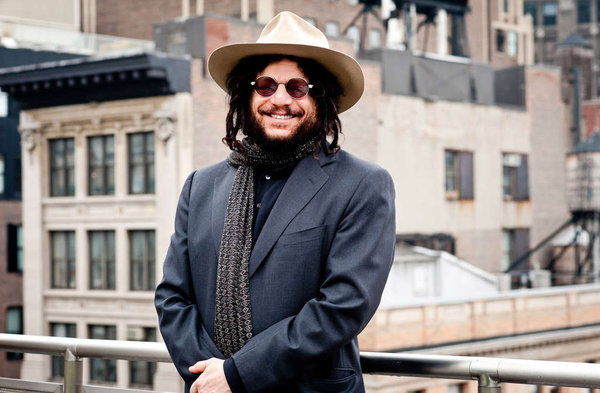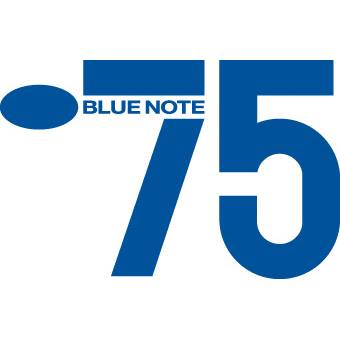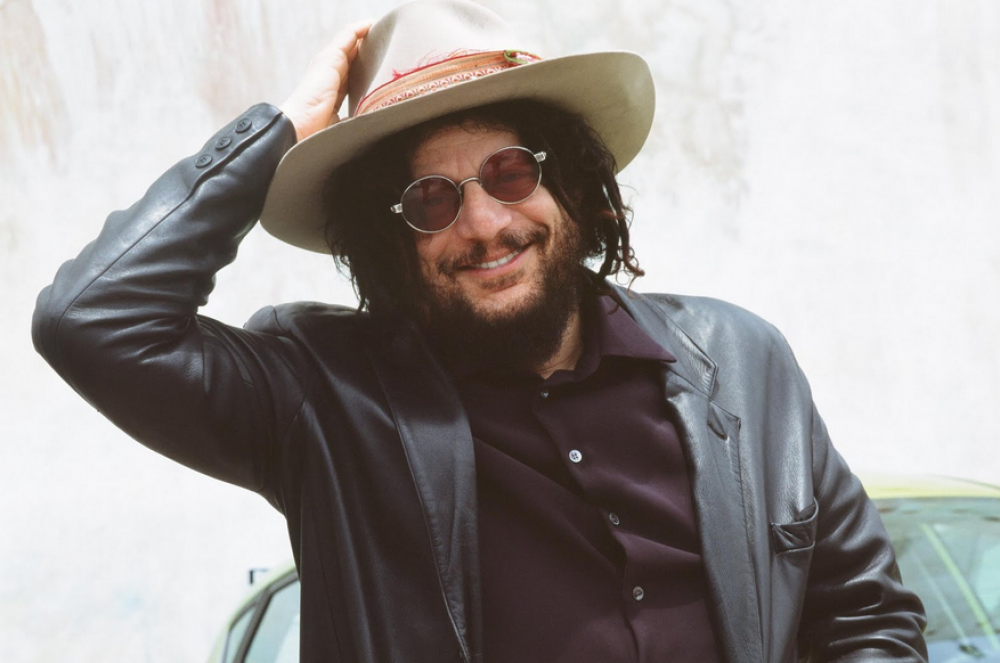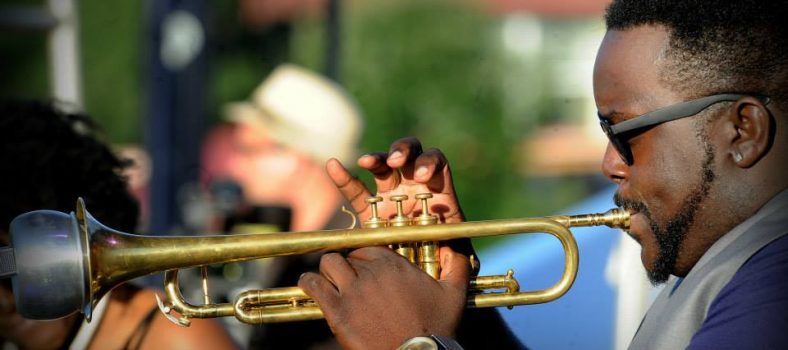
You’ll love Blue Note Records. I don’t need for you to believe me, because I already know that it’s true. Now, you’re probably asking yourself, “Who is this guy? He doesn’t know me.” And to that, I would have to agree. I don’t know you, personally. But, I do know enough about music to understand that regardless of your musical proclivities, Blue Note Records has satiated your auditory hunger at least once. Seventy-five years of excellence all but guarantees it.
My grandparents fell in love with Blue Note back in 1951. It was in this year they slowed danced to Thelonious Monk’s “Ruby, My Dear.” The legendary pianist tickled the ivory keys with a virtuosic touch, the soundtrack to strategically placed hands on hips and gentle kisses on the cheek.
My parents fell in love with Blue Note in 1975. It was in this year that they both got lost in the funk rhythms of Donald Byrd and Larry Mizell. Heavy strings and triumphant horn play created the background for many a dark liquor-inspired nights. Change, it really does make you want to hustle.
As for me, I fell in love with Blue Note back in 2003. I knew of Monk and I knew of Byrd, but no matter how much my parents taught me about music, I was a child of Hip-Hop. So, when Madlib flipped a bunch of classic records for Shades of Blue, my whirlwind affair with that “old jazz label” had officially begun.
Like I said, if you love Blue Note Records, it’s simply because you love music. The two are just intertwined that way. This is why we’re celebrating their 75 years of existence.
Recently, iRock Jazz sat down with the president of Blue Note Records, musician/producer Don Was to discuss the label’s iconic history and its progressive outlook for the future.
iRock Jazz: Blue Note has been on the cutting edge of discovering new talent. What’s your process?
DW: I wish I could tell you that there was an organized process in place. If it moves me and the people at the company, we put it out. It’s kind of ad hoc. What’s weird is we’re a part of a very, very big record company, which is the Universal Music Group, and yet we operate the company as if we were a very small independent company. Basically, there are just a handful of employees. There’s probably ten people that work at Blue Note Records proper, but when we need the muscle, we can call into the Universal Music Group. So, I tend to think of us as a bunch of hippies sitting around [laughs] listening to music.
 iRJ: What does the 75th anniversary of Blue Note mean to you and the label?
iRJ: What does the 75th anniversary of Blue Note mean to you and the label?
DW: The thing that strikes me the most is that so much of our culture is disposable. That even includes a lot of music that was made 75 years ago. So, for a record company to endure and have the catalog still be of interest and to have a slate of current artists who are carrying on the tradition in a modern way, I think that’s a great accomplishment. What it reminds me is that you can’t aim to make disposable music for the moment. It’s really important to just try and make good records that are going to put people in touch with their feelings. I’ll give you a personal example. I bought Speak No Evil by Wayne Shorter when it was a new album. It blew my mind in ways that I still don’t understand, even though I understand musically now what’s happening. There’s something that goes beyond the theory and all the technique and that’s the heart and soul of that music. When I was down and out, when I was experiencing tough times as a teenager or in college, if I put on Speak No Evil, it made me feel better. Now, almost 50 years later, I still put on Speak No Evil to remember who I am. That’s what you want to do. You want to try and make records that mean something to people, not just for an hour, but for 50 years.
iRJ: You all have this new crop of younger, experimental artists where “jazz musician” may not be the best title. How do you handle these new attitudes and artists on a label that is so rooted in the history and tradition of jazz?
DW: I’m sure that in 1950’s there were people who listened to the first Jazz Messengers album with Art Blakey and Horace Silver and said “this isn’t jazz, this isn’t bebop.” And I’m sure that there were people in the 1960’s who listened to Ornette Coleman’s At the Golden Circle or Cecil Taylor’s Unit Structures that said “this isn’t jazz.” I’m sure there are people who listened to Jimmy Smith and said “this isn’t jazz.” There’s always going to be those people. I think you have to define what the tradition is. Jazz is a pretty loosely applied term. To me, Robert Glasper, Chris Dave, Derrick Hodge, Jose James, Otis Brown and Brian Blade Fellowship and Ambrose Akinmusire, to name a few, I think are perfectly aligned with the tradition of Blue Note Records. However, if you define jazz I don’t even know if that’s a good word to use to describe what we do now, or what Alfred Lion was doing in the 1950’s, 1960’s and1970’s. Its improvisational music and the main thing is that it makes you feel something.
iRJ: In your position, how much of your decision-making process involves you being a musician, you being a businessman, or you simply making a great gamble?
DW: Being a musician is a dangerous way to listen to other people’s records or be a record producer today. We tend to listen competitively [laughs]. I’m not proud of that, but I’ll listen and I’ll think, “Awww fuck, why didn’t I think of that!” That’s not a good way to listen to music. Gambling is basically what you’re doing. You’re spending somebody’s money and saying it’ll not only bring in a return, we’re going to make people’s lives richer [laughs]. The point is, you should just turn everything off and feel. If the music makes you feel something and you get swept away in the moment, it’s good music.
 iRJ: Part of the success of Blue Note is how you all market new artists and how you break them. What’s the formula?
iRJ: Part of the success of Blue Note is how you all market new artists and how you break them. What’s the formula?
DW: The whole mission statement of the record company is make big records and let as many people know about it as possible. The interesting thing, in these times, is the way people find out about music and how it is changing dramatically and rapidly. Five years ago, there was a network of jazz radio stations that would expose the music to people. You could sell hundreds of thousands of records based off of that notion. Their reach has been significantly diminished in the last several years. So, you can’t break a record by relying on jazz radio stations anymore. Young people are finding out about music in all kinds of different ways. My youngest kids, they discover music mainly on YouTube. So, It’s changing. It’s the single biggest challenge we face.
I don’t think it’s so hard to find great music and record it. I think the hardest part is letting people know about it. Right now, we’re sponsoring a class at USC and it’s made up of music students, marketing students, and music business students. Their assignment is to break Ambrose’s record [laughs]. We’ve given them what our sales projections are for the first week. If the class is successful, it comes in double that. Their job is to find new ways to get the info out to people. I’m hoping we learn a whole lot from it. Also, I hope we find some students that can come and work at Blue Note and bring in some new ideas.
iRJ: Speaking to marketing, Beyonce just released an album without telling anyone beforehand. Can jazz do that?
DW: I think it could work. I thought it was brilliant what she did. I don’t think we could do it on that scale, where you sell a million downloads in 48 hours. But, I think it depends. There were so many innovative things that they did. One was just coming with no hype and no setup. That’s hard, but you can do that on a smaller scale, I think. The other was to make a visual album, which, I think, was as radical step. However, I think it’s a great idea. It gives value to the purchase. I don’t see any reason why people in other genres of music couldn’t follow suit. I also think there’s a lot to be learned from that notion. But it didn’t hurt that she’s the biggest star in the world. That certainly brought attention. It would be tougher to make a splash with say Ravi Coltrane.
iRJ: You’ve been clairvoyant in your recognition of trends. Where’s the music going today and how will it affect the world tomorrow?
DW: I don’t know that I can generalize, to be honest with you. But I will say, in the end, it’s all about making the listener feel something and hopefully to help them make some sense out of their lives. Everyone finds their own avenue of expression. Even between Jason Moran and Rob Glasper, who came out of Houston, went to the same high school, their vision of how to go about that to me is so different. Yet, I suppose, if a martian came to Earth, they wouldn’t be able to differentiate between Jason Moran and Robert Glasper. It’s about all the traditional things that have made music important to people over the years. Those values continue to be paramount.
 iRJ: What factors do you think contribute to the beginnings of creative musical art in the early stages of life?
iRJ: What factors do you think contribute to the beginnings of creative musical art in the early stages of life?
DW: The part of the brain that processes music, neurologists have determined the function of that area of the brain is pre-language communication. The best example is when mothers coo at their baby. They tend to use the same two notes “Awww, look at the baby.” That’s music. For the three years, or however it is when kids are really learning to communicate verbally, that part of the brain is very active. You go by tones. That’s how you communicate. Once you learn language, we still keep that part of the brain open, because, I think, there are limitations to how much you can express through conversational language. That’s why we have art, because there are deeper things in our lives that need to be communicated.
iRJ: What’s on the horizon for Blue Note for the rest of the year?
DW: There are many things going on with our 75th anniversary. There’s a big event at the Kennedy Center. That’s going to feature Wayne Shorter and Norah Jones. There are photo exhibits at the Grammy Museum. One thing that I think is really significant is that we’re introducing a big vinyl initiative. All the records have been re-mastered. We’re doing a people’s priced vinyl re-issue. We’re going to start reissuing five albums a month on vinyl with the new mastering and the exact replication of the original package. There’ll be a bunch of independent retailers that will become authorized Blue Note dealers where they’ll have these five reissues every month. The re-mastered version will also be available digitally.
But the biggest thing on the horizon for Blue Note is that our goal is to not make any shitty records. That is how we’re going to celebrate the 75th anniversary.
The names will live on forever in the canon of music—Lion, Was, Blakey, Glasper. But, Blue Note Records was not built by any specific individual—no one musician, no one executive. Blue Note was intelligently designed by the Great Architect, that which inspires all who stand the test of time: Innovation.
To exist for 75 years is no small feat and while making good music sounds like a recipe for success, it’s not one that guarantees longevity. When we talk of Monk, when we talk of Byrd, Glasper, and others we talk of seemingly every artist that has claimed Blue Note as their home. While different in form, their function has always been to push boundaries. That is why Blue Note exists today.
Words by Paul Pennington





